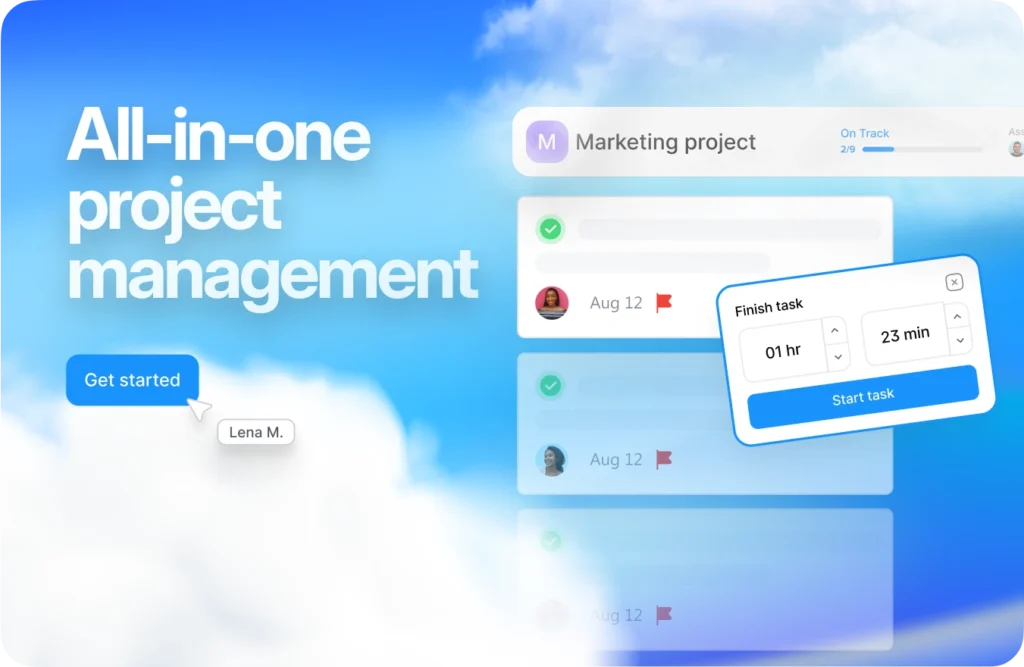20 Essential Project Management Skills

Project management skills refer to the core abilities necessary to successfully bring a project from start to finish. These skills allow for more efficient project completion, positively impacting the team’s overall performance. Regardless of one’s role on the team, enhancing project management skills can directly improve the ability to complete assignments successfully. Project management is a multifaceted discipline that requires a diverse set of skills to achieve successful outcomes.
Project managers(PM) do a bit of everything: they fill in the gaps, research tools, craft proposals, and manage personalities while guiding their team through the project’s lifecycle. Whether you’re a seasoned professional or a newcomer, developing the right project management skills is crucial for becoming a more effective and impactful manager. In this article, we will delve into 20 key skills every project manager should have to navigate the complexities of project initiation, planning, execution, control, and closure.
What Does a Project Manager Do?
A project manager wears many hats, acting as the bridge between an organization’s strategic goals and the team’s execution. Their main responsibilities include:
- Planning and Defining Scope: This involves setting clear objectives, outlining deliverables, and ensuring alignment with the organization’s goals.
- Task Assignment and Team Management: A project manager ensures that every team member knows their role and is equipped with the resources to succeed.
- Monitoring and Delivery: They track progress, address roadblocks, and maintain quality standards to meet deadlines.
Imagine a ship without a captain—chaos, right? A project manager is that captain, steering the ship amidst turbulent waters. These skills matter because they ensure:
- Projects align with business objectives.
- Resources are utilized efficiently.
- Risks are mitigated, and quality deliverables are achieved.

How to Use Your Project Management Skills?
Project management isn’t limited to office desks. These skills are applicable across industries—from tech startups to construction and even event planning. A skilled project manager adapts to the unique challenges of each industry while ensuring consistent project outcomes. They:
- Adjust strategies based on team dynamics and stakeholder expectations.
- Quickly resolve unexpected hurdles, keeping the project on track.
Continuous improvement is key to staying relevant. Successful project managers frequently:
- Pursue certifications like PMP (Project Management Professional) or PRINCE2.
- Seek mentorship opportunities and hands-on experience to sharpen their abilities.
Top 20 Skills Every Successful Project Manager Needs
- Effective Communication Skills
Effective communication is the cornerstone of project management. Project managers must communicate clearly and concisely with the team, stakeholders, and clients. This ensures smooth information flow and helps achieve project goals.
- Leadership Abilities
Leadership skills are crucial for guiding and motivating the project team. A good project manager inspires confidence, sets a vision, and leads by example. Strong leadership fosters a collaborative and productive work environment.
- Negotiation Skills
Negotiation is an essential skill for managing project resources, timelines, and stakeholder expectations. Project managers often need to find common ground and make compromises to keep the project on track. Effective negotiation helps in resolving conflicts and securing necessary resources.
- Time Management
Time management is vital for ensuring that project deadlines are met. Project managers must prioritize tasks, create realistic schedules, and monitor progress regularly. Good time management prevents delays and ensures efficient use of resources.
- Risk Management
Identifying and mitigating risks is a critical aspect of project management. Project managers must foresee potential issues and develop strategies to address them. Effective risk management minimizes the impact of unforeseen events on the project.
- Problem-Solving Skills
Problem-solving skills are essential for overcoming obstacles that arise during a project. Project managers need to think critically and creatively to find effective solutions. This helps in maintaining project momentum and achieving objectives.
- Technical Proficiency
A good understanding of the technical aspects of the project is necessary for effective management. Project managers should be familiar with the tools, technologies, and methodologies used in the project. Technical proficiency enables better decision-making and problem-solving.
- Budget Management
Managing the project budget is crucial for financial success. Project managers must plan, monitor, and control the budget to avoid overspending. Effective budget management ensures that the project is completed within financial constraints.
- Team Building Skills
Building a cohesive and motivated team is essential for project success. Project managers should foster a positive team culture, encourage collaboration, and support team members. Strong team building leads to higher productivity and job satisfaction.
- Adaptability and Flexibility
Projects often face changes and unexpected challenges. Project managers must be adaptable and flexible to adjust plans and strategies as needed. This helps in responding effectively to changing circumstances and maintaining project progress.
- Attention to Detail
Attention to detail is important for ensuring project quality and accuracy. Project managers must monitor all aspects of the project, from planning to execution, to identify and correct any issues. This attention helps in delivering a high-quality final product.
- Decision-Making Skills
Effective decision-making is crucial for project success. Project managers must evaluate options, consider potential impacts, and make informed decisions promptly. Good decision-making helps in steering the project in the right direction.
- Conflict Resolution Skills
Conflicts are inevitable in any project. Project managers must have the skills to resolve conflicts fairly and efficiently. Effective conflict resolution maintains team harmony and ensures that the project progresses smoothly.
- Organizational Skills
Organizational skills are essential for managing multiple tasks and responsibilities. Project managers must keep track of project details, schedules, and resources. Good organizational skills lead to better project coordination and efficiency.
- Stakeholder Management
Managing stakeholders effectively is key to project success. Project managers must understand stakeholder needs, expectations, and concerns. Building strong relationships with stakeholders ensures their support and satisfaction.
- Strategic Thinking
Strategic thinking involves planning for the long-term success of the project. Project managers must align project goals with organizational objectives and anticipate future challenges. Strategic thinking ensures that the project contributes to overall business success.
- Motivational Skills
Motivating the project team is essential for maintaining high performance and morale. Project managers should recognize and reward team members’ efforts, provide constructive feedback, and create a motivating work environment. This leads to a committed and productive team.

- Quality Management
Ensuring the quality of project deliverables is a key responsibility of the project manager. They must establish quality standards, conduct regular reviews, and implement quality control processes. Quality management ensures that the final product meets or exceeds expectations.
- Change Management
Managing changes effectively is crucial for project success. Project managers must handle change requests, assess their impact, and implement changes smoothly. Effective change management minimizes disruptions and keeps the project on track.
- Emotional Intelligence
Emotional intelligence is important for understanding and managing emotions in the workplace. Project managers must be empathetic, self-aware, and able to manage stress. High emotional intelligence leads to better relationships and a positive team environment.

These 20 essential skills form the foundation of effective project management. By developing and honing these skills, project managers can lead their teams to success, overcome challenges, and deliver outstanding results. Investing in these skills is an investment in the success of any project.
Mastering project management skills is not just about checking off a list of abilities—it’s about continuously growing, adapting, and leading with confidence. Whether it’s effective communication, strategic thinking, or emotional intelligence, each skill contributes to the broader goal of driving projects to success while fostering a collaborative and motivated team environment.
The dynamic nature of project management demands versatility and a commitment to lifelong learning. By investing in these 20 key skills, project managers can not only navigate the complexities of projects with ease but also elevate their impact within their organizations. The result? Better outcomes, satisfied stakeholders, and a reputation for excellence in the ever-evolving world of project management.

